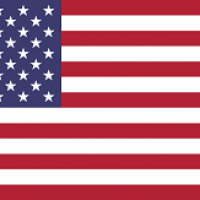In order to participate in the GunBroker Member forums, you must be logged in with your GunBroker.com account. Click the sign-in button at the top right of the forums page to get connected.
Red China Flexes it Muscle in S.China Sea
 serf
Member Posts: 9,217 ✭✭✭✭
serf
Member Posts: 9,217 ✭✭✭✭
No doubt about it Red China is still a communist nest of war mongers looking to become a great power. And The US has given them much information under The Clinton administration to make it so!
serf
http://geab.eu/en/navy-starts-exercise-in-s-china-sea/
The Chinese navy announced 10 days of military training in the waters near eastern Hainan Island in the South China Sea starting on Wednesday, amid heightened tensions in the region.
During the training, "no vessel is allowed to enter the designated maritime areas", according to China's Maritime Safety Administration, which released the drill plan on Monday.
http://www.nytimes.com/1999/03/06/world/breach-los-alamos-special-report-china-stole-nuclear-secrets-for-bombs-us-aides.html
The paper did this in the early summer, and published a comprehensive article on Sept. 7, 1999. The article laid out even more extensively the evidence that Chinese espionage had secured the key design elements of an American warhead called the W-88 while showing at the same time that this secret material was available not only at Los Alamos but ''to hundreds and perhaps thousands of individuals scattered throughout the nation's arms complex.'' That article, which helped put the charges against Dr. Lee in a new perspective, appeared a full three months before the scientist was indicted. Early on, our reporting turned up cautions that might have led us to that perspective sooner. For example, the March 6 article noted, deep in the text, that the Justice Department prosecutors did not think they had enough evidence against the Los Alamos scientist to justify a wiretap on his telephone. At the time, the Justice Department refused to discuss its decision, but the fact that the evidence available to the F.B.I. could not overcome the relatively permissive standards for a wiretap in a case of such potential gravity should have been more prominent in the article and in our thinking. Passages of some articles also posed a problem of tone. In place of a tone of journalistic detachment from our sources, we occasionally used language that adopted the sense of alarm that was contained in official reports and was being voiced to us by investigators, members of Congress and administration officials with knowledge of the case. This happened even in an otherwise far-seeing article on June 14, 1999, that laid out -- a half year before the indictment -- the reasons the Justice Department might never be able to prove that Dr. Lee had spied for China. The article said Dr. Lee ''may be responsible for the most damaging espionage of the post-cold war era.'
serf
http://geab.eu/en/navy-starts-exercise-in-s-china-sea/
The Chinese navy announced 10 days of military training in the waters near eastern Hainan Island in the South China Sea starting on Wednesday, amid heightened tensions in the region.
During the training, "no vessel is allowed to enter the designated maritime areas", according to China's Maritime Safety Administration, which released the drill plan on Monday.
http://www.nytimes.com/1999/03/06/world/breach-los-alamos-special-report-china-stole-nuclear-secrets-for-bombs-us-aides.html
The paper did this in the early summer, and published a comprehensive article on Sept. 7, 1999. The article laid out even more extensively the evidence that Chinese espionage had secured the key design elements of an American warhead called the W-88 while showing at the same time that this secret material was available not only at Los Alamos but ''to hundreds and perhaps thousands of individuals scattered throughout the nation's arms complex.'' That article, which helped put the charges against Dr. Lee in a new perspective, appeared a full three months before the scientist was indicted. Early on, our reporting turned up cautions that might have led us to that perspective sooner. For example, the March 6 article noted, deep in the text, that the Justice Department prosecutors did not think they had enough evidence against the Los Alamos scientist to justify a wiretap on his telephone. At the time, the Justice Department refused to discuss its decision, but the fact that the evidence available to the F.B.I. could not overcome the relatively permissive standards for a wiretap in a case of such potential gravity should have been more prominent in the article and in our thinking. Passages of some articles also posed a problem of tone. In place of a tone of journalistic detachment from our sources, we occasionally used language that adopted the sense of alarm that was contained in official reports and was being voiced to us by investigators, members of Congress and administration officials with knowledge of the case. This happened even in an otherwise far-seeing article on June 14, 1999, that laid out -- a half year before the indictment -- the reasons the Justice Department might never be able to prove that Dr. Lee had spied for China. The article said Dr. Lee ''may be responsible for the most damaging espionage of the post-cold war era.'


Comments